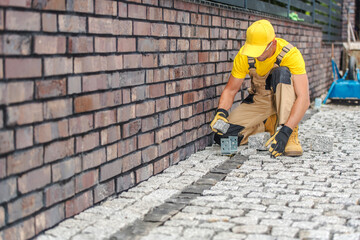Concrete Contractors mix, pour, and work with concrete for various projects. These include patios, sidewalks, driveways, swimming pools, and retaining walls. Concrete Contractors Dallas TX have extensive training and credentials. They are usually bachelor’s degree holders in structural engineering or civil engineering. They then pursue a master’s or doctorate in their field.

Before a construction project begins, the site needs to be properly cleared and graded. This includes removing trees, existing buildings, and other structures that could interfere with construction. When done properly, site preparation can help you avoid costly reworks and delays, which can negatively affect the cost of your construction project. It also helps you identify potential site complications and address them before they become a problem.
A site preparation contractor will remove any trees or debris, install drainage systems, and perform other earthwork projects on the land to make it level. They may also dig holes to install a foundation and underground utilities. They also will test the soil to ensure it can support a foundation and absorb water.
Formwork is the construction of molds that create concrete structures such as foundations, walls and slabs. Contractors use a variety of formwork systems depending on the type and complexity of the project.
In most cases, these forms are installed by a highly skilled crew using a variety of methods to ensure that they are properly shaped and fit the specific dimensions needed for the structure. For example, a suspended house slab can weigh up to 150 tonnes between the concrete and steel which is why it is necessary for the formwork to be constructed carefully to ensure that they are accurate and can support the weights involved.
The construction process can be optimized by coordinating the delivery of material and formwork to the jobsite. It is best to have the formwork supplier join the team at an early stage in order to develop a jobsite plan. This will enable a more precise cost estimate and schedule.
Concrete Contractors offer concrete pouring services to homeowners and businesses. Their services include preparation, pouring, and finishing of concrete, which can be used for a variety of projects.
In some cases, a concrete service may also provide decorative features such as stamping. This can add a special touch to the project and help to increase its value.
When choosing a concrete pouring service, it is important to compare prices. You should also ask for a portfolio or references to see if the company is reputable and trustworthy.
A concrete contractor mixes the ingredients for a concrete mix, which is then transported and poured at a site. They must follow a specific process to ensure the quality of the concrete and to prevent it from cracking or crumbling.
Inspections are a vital part of the construction process to ensure that all projects are progressing as planned and in compliance with set quality standards. They also help to reduce health and safety risks on site, which is a major factor in the construction industry.
The intensity of inspections can vary depending on the size of a project and its intended use. A large commercial mall, for example, will require more inspections than a small residential home.
Throughout the project lifecycle, inspections are conducted for various purposes, including health and safety, compliance with the Construction (Design and Management) regulations and standards, and general contract management.
Some of the most common inspections involve checking the concrete base. This includes ensuring that the materials are in the right proportions and mixing well. It also involves checking that the contractor has properly hauled and delivered the concrete.
A concrete contractor is a professional who specializes in working with concrete to construct, install, and repair concrete structures such as floors, walls, driveways, sidewalks, and other surfaces. They are responsible for managing all aspects of a concrete project, including design, preparation of the site, pouring, finishing, and curing.
Concrete contractors work with a variety of tools and equipment, including mixers, trowels, and saws, to prepare and install concrete. They must have a strong understanding of the properties of concrete and how to properly mix and apply it to ensure it sets and cures correctly. Additionally, they must have knowledge of local building codes and safety regulations to ensure that all concrete work meets required standards.